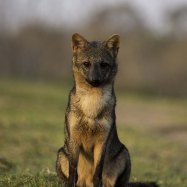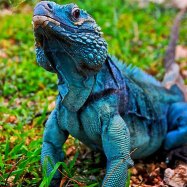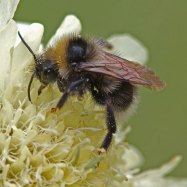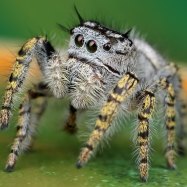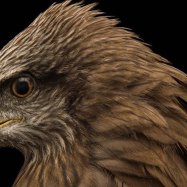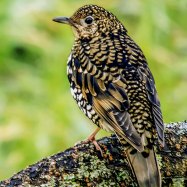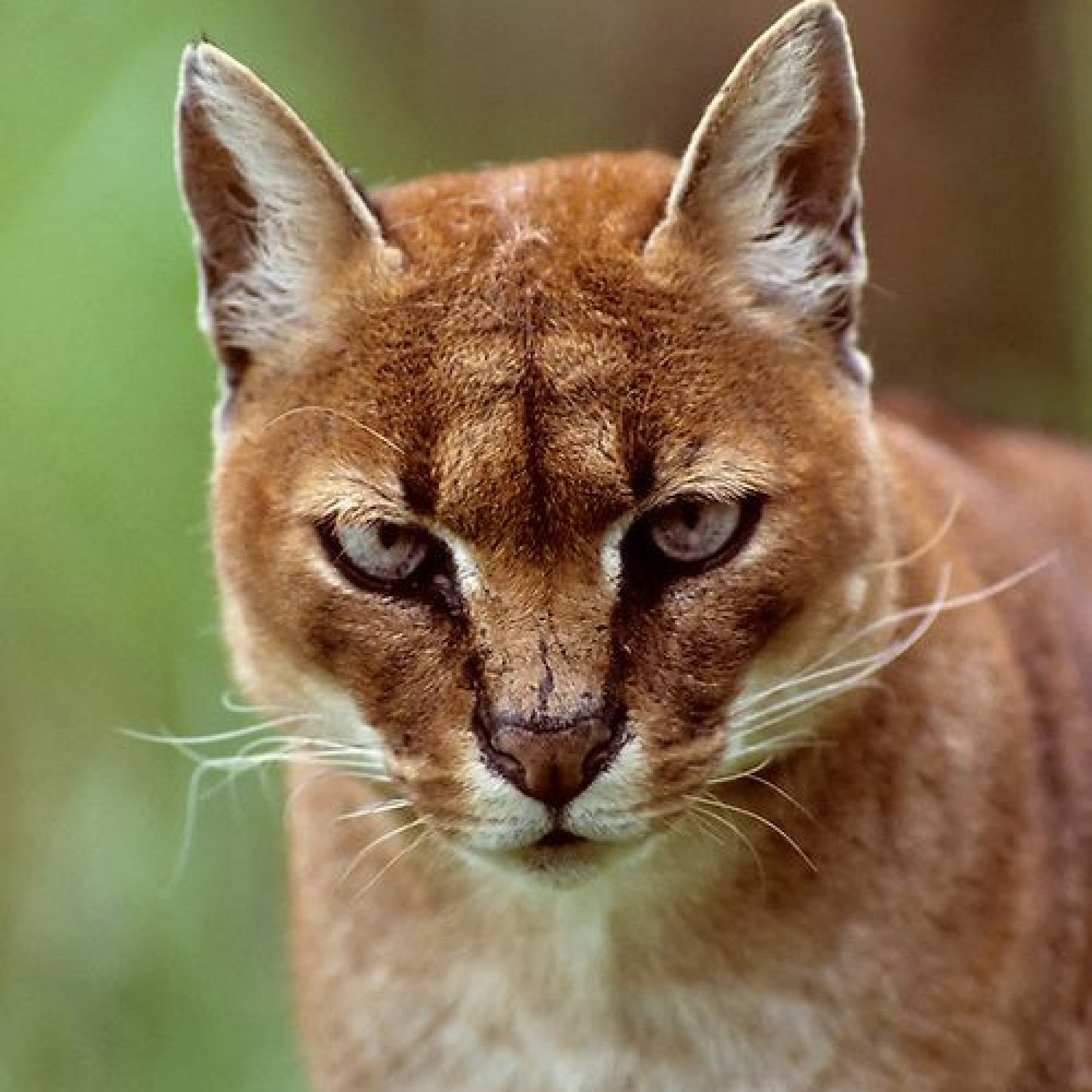
African Golden Cat
61 to 101 cm
The African Golden Cat is a medium-sized feline found in Sub-Saharan Africa. With a body shape similar to domestic cats, it grows up to 61-101 cm in length. Belonging to the Felidae family, it is also known by its scientific name Caracal aurata. These elusive creatures are not frequently seen in the wild, making them a rare sight for adventurers and wildlife enthusiasts. #AfricanGoldenCat #SubSaharanAfrica #RareSighting
Animal Details Summary:
Common Name: African Golden Cat
Kingdom: Animalia
Habitat: Rainforests, montane forests, and savannas
The Magnificent African Golden Cat: A Rare and Enigmatic Feline
The African continent is known for being home to some of the most iconic and awe-inspiring wildlife, from the powerful lion to the graceful giraffe. However, amidst these well-known species, there are also many hidden gems waiting to be discovered. One such gem is the African Golden Cat, a rare and enigmatic feline that roams the lush rainforests and savannas of Central and West Africa. This elusive creature may not be as well-known as its larger relatives, but its beauty and mysterious nature make it a truly remarkable animal African Golden Cat.An Introduction to the African Golden Cat
Scientifically known as Caracal aurata, the African Golden Cat is a medium-sized carnivore that belongs to the family Felidae, the same family as lions, tigers, and leopards. Its common name comes from its unique golden-colored fur, which can range from a bright golden hue to a dark reddish or greyish color. Its body shape is similar to that of a domestic cat, with a short and stocky body and a long tail.The African Golden Cat is native to sub-Saharan Africa and can be found in various countries, including Cameroon, Congo, Equatorial Guinea, Ivory Coast, and Nigeria. Its preferred habitats are rainforests, montane forests, and savannas, where it can camouflage amongst the dense vegetation.
A Hunter of the Shadows
The African Golden Cat is a solitary and diurnal hunter, meaning it is most active during the day. However, due to its shy and elusive nature, it is often difficult to study in the wild, making it a relatively understudied species. As a result, much of its behavior and hunting habits are still a mystery.What is known is that the African Golden Cat is a carnivorous creature with a diverse diet Abyssinian. It primarily feeds on small mammals, such as rodents and monkeys, but it is also known to prey on birds, reptiles, and even larger prey like antelopes and small deer. Its hunting strategy often involves stalking and pouncing on its prey with incredible agility and speed, aided by its sharp claws and teeth. Its golden fur provides excellent camouflage, allowing it to blend seamlessly into its surroundings and ambush its prey.
A Peep into the African Golden Cat's World
Nestled deep within the dense forests of Africa, the African Golden Cat lives a solitary life, only coming together with others during breeding season. These elusive creatures are masters of disguise, using their golden fur to blend into their environment and avoid being seen by potential predators or human threats.Despite its elusive nature, scientists have been able to observe the African Golden Cat exhibiting a wide range of behaviors, from hunting and marking its territory to grooming and playing. However, one of the most fascinating aspects of its behavior is its communication with other felines. Like most felids, the African Golden Cat uses a variety of vocalizations and body language to communicate with other cats, from mewing and growling to rubbing against objects to leave its scent.
The Threat of Extinction
Despite being a master of survival in the wild, the African Golden Cat is facing significant threats to its existence. Habitat loss due to deforestation and human encroachment on its once-untouched territory has greatly impacted its population. Additionally, they are often hunted for their fur, which is highly prized in some cultures. As a result, the International Union for Conservation of Nature (IUCN) has listed the African Golden Cat as a Near Threatened species, and its numbers are steadily declining.Conservation efforts are being made to protect the African Golden Cat, including establishing protected areas and educating local communities on the importance of preserving this elusive cat. However, with its shy and solitary nature, much still needs to be learned about this species to effectively protect it.
A Beacon of Hope
Despite the threats facing this enigmatic feline, there is still hope for the African Golden Cat's survival. Its elusive nature and adaptability have allowed it to thrive in protected areas and remote regions, giving hope for its long-term survival.Moreover, the African Golden Cat serves as a crucial indicator of the health of the ecosystems it inhabits. Its presence in an area indicates a healthy ecosystem, and its decline could signal larger issues within the ecosystem that need to be addressed. Therefore, protecting this elusive cat also means preserving the delicate balance of nature in the African rainforests and savannas.
Conclusion: A Fascinating Creature Worth Protecting
The African Golden Cat may not be the king of the jungle, but it is undoubtedly one of the most fascinating and mysterious creatures of the African continent. From its elusive nature and diverse hunting habits to its unique golden fur and crucial role in maintaining the balance of nature, this feline deserves our attention and protection.As we continue to discover and learn more about the African Golden Cat, let us also take action to preserve its habitat and ensure its survival for future generations to admire and appreciate. Only by working together can we secure a future for this magnificent and enigmatic creature.

African Golden Cat
Animal Details African Golden Cat - Scientific Name: Caracal aurata
- Category: Animals A
- Scientific Name: Caracal aurata
- Common Name: African Golden Cat
- Kingdom: Animalia
- Phylum: Chordata
- Class: Mammalia
- Order: Carnivora
- Family: Felidae
- Habitat: Rainforests, montane forests, and savannas
- Feeding Method: Carnivorous
- Geographical Distribution: Central and West Africa
- Country of Origin: Various countries in Africa including Cameroon, Congo, Equatorial Guinea, Ivory Coast, and Nigeria
- Location: Sub-Saharan Africa
- Animal Coloration: Variable: golden, reddish, or greyish
- Body Shape: Medium-sized, similar to domestic cats
- Length: 61 to 101 cm
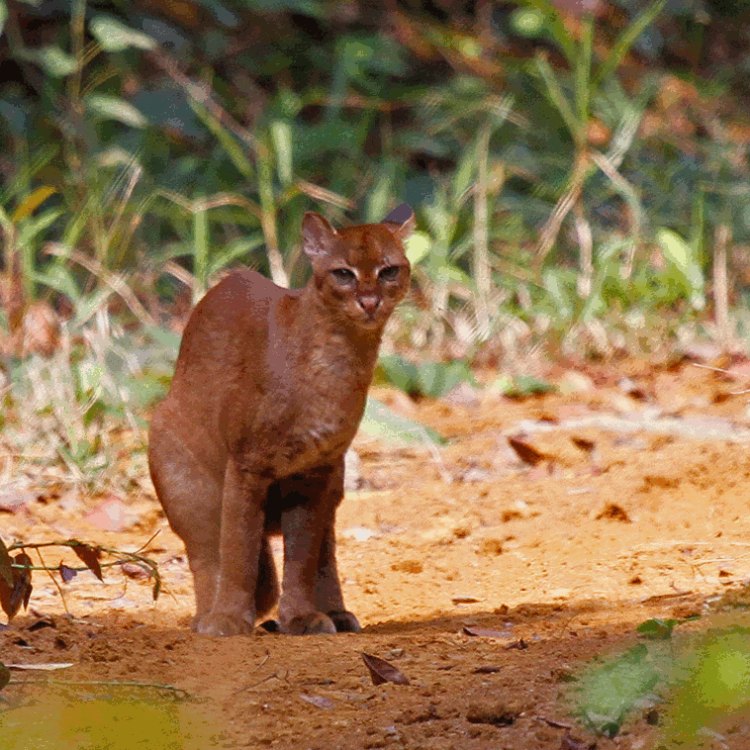
African Golden Cat
- Adult Size: Medium-sized, weighing 7 to 16 kg
- Average Lifespan: 10 to 15 years
- Reproduction: Sexual
- Reproductive Behavior: Polygamous
- Sound or Call: Meowing and other vocalizations
- Migration Pattern: Non-migratory
- Social Groups: Solitary
- Behavior: Nocturnal and crepuscular
- Threats: Habitat loss, hunting, and trapping
- Conservation Status: Near Threatened
- Impact on Ecosystem: Helps control populations of small mammals
- Human Use: Hunted for skins and body parts
- Distinctive Features: Golden or reddish fur with black spots or stripes
- Interesting Facts: The African Golden Cat is one of the least studied cats in Africa
- Predator: Larger predators such as leopards and hyenas
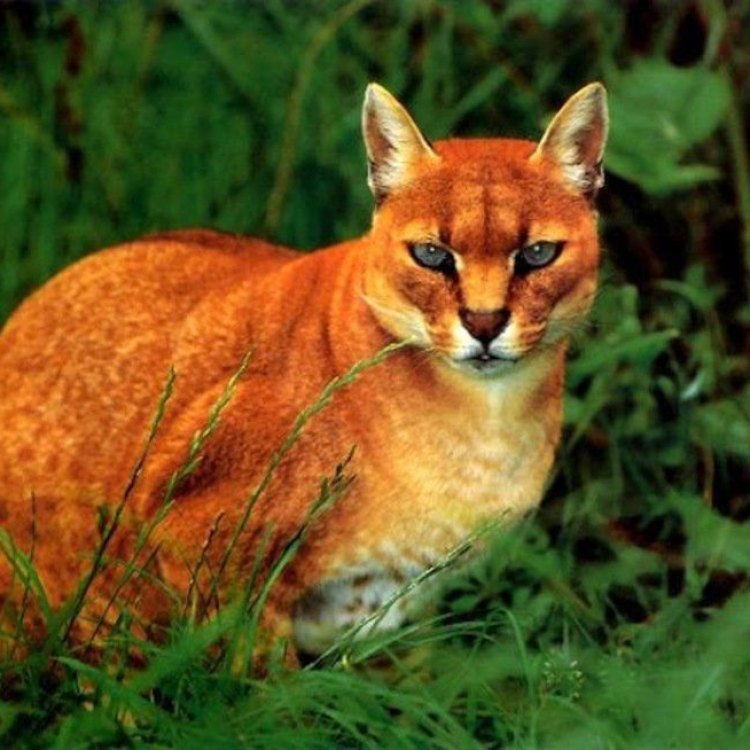
Caracal aurata
The Enigmatic African Golden Cat: A Rare and Misunderstood Species
The African Golden Cat, scientifically known as Profelis Aurata, is one of the most enigmatic and elusive species of cat in the world. Found only in the dense rainforests and mountainous regions of central and western Africa, this medium-sized feline possesses a unique combination of physical and behavioral characteristics that have baffled scientists and captivated wildlife enthusiasts for decades.Adult African Golden Cats can weigh anywhere from 7 to 16 kilograms, making them similar in size to a small leopard. They have a lifespan of 10 to 15 years, with females typically living longer than males PeaceOfAnimals.Com. However, unlike leopards and other large cats, the African Golden Cat has not been extensively studied, and there is much we still don't know about this elusive creature.
The reproductive behavior of these cats is sexual, and they are known to be polygamous, mating with multiple different partners. They do not have a specific breeding season, with mating occurring throughout the year. Female African Golden Cats give birth to litters of one to three kittens after a gestation period of around 70 days. The cubs stay with their mother for up to a year before venturing out to establish their own territories.
When it comes to vocalizations, the African Golden Cat may seem rather tame compared to other felines. Their calls consist of meowing and other vocalizations that are often described as whistling or chirping. While they are not the most vocal cats, they are known to mark their territory by making scratching sounds on trees and rocks.
Unlike many other animals, the African Golden Cat does not migrate Armenian Gampr. They are non-migratory, which means they stick to a specific area and do not wander around. This could be due to their solitary nature, where they prefer to live and hunt alone. The only time they come into contact with other cats is during mating or when a mother is raising her cubs.
Their solitary nature is further demonstrated by their behavior, which is mainly nocturnal and crepuscular. This means they are more active at night and during dawn and dusk. These cats are equipped with excellent sight, hearing, and sense of smell, making them efficient hunters in low light conditions. They are opportunistic hunters and will prey on a variety of small mammals, birds, and reptiles.
Unfortunately, the African Golden Cat faces many threats in the wild, which have contributed to its elusive nature. The primary threat is habitat loss due to deforestation and human expansion. As their natural habitat is destroyed, these cats are forced to roam in search of food and shelter, making them vulnerable to predators and human-wildlife conflict.
The African Golden Cat is also hunted and trapped for its striking fur, which is highly valued in the illegal wildlife trade. They are also hunted for their body parts, which are used in traditional medicine and sold as curiosities. This exploitation, coupled with habitat loss, has led to a decline in their population and has earned them a Near Threatened status on the IUCN Red List.
The impact of the African Golden Cat on its ecosystem cannot be understated. As apex predators, they play a crucial role in regulating the populations of small mammals, birds, and reptiles in their natural habitats. This control helps maintain a balanced ecosystem, ensuring the survival of other species. However, with their declining numbers, this balance is at risk, and the consequences could be dire.
Unfortunately, the African Golden Cat also has a significant impact on human populations. Due to their solitary and elusive nature, they rarely come into contact with humans. However, they are sometimes hunted by local communities for their meat, and their body parts are sold on the black market, contributing to the decline of their already vulnerable population.
The distinctive features of the African Golden Cat make it stand out among other cats. Their reddish-golden fur, with black spots or stripes, is unique and striking. This coloration serves as camouflage in the dense forests, making it challenging to spot them in their natural habitat. However, it is their elusive nature that has contributed to their mystique and made them one of the least studied cats in Africa.
Despite their elusiveness, there are some interesting facts about the African Golden Cat that have been discovered by scientists. For starters, they are one of the few cat species in the world that has not been extensively studied. Due to their solitary and elusive nature, it is challenging to study their behavior and habits, making them somewhat of a mystery.
Another intriguing fact is their relationships with larger predators. While they primarily operate as solitary hunters, they have been observed following larger predators, such as leopards and hyenas, to benefit from their kills. This behavior shows their intelligence and adaptability in the wild.
In conclusion, the African Golden Cat is a rare and misunderstood species of cat. Their elusive nature and unique characteristics have made them a subject of fascination for scientists and wildlife enthusiasts. However, with their population declining due to human threats, it is imperative that we take action to protect these beautiful creatures and ensure their survival in the wild. Only through conservation efforts and raising awareness about their importance in the ecosystem can we hope to preserve these magnificent cats for future generations.
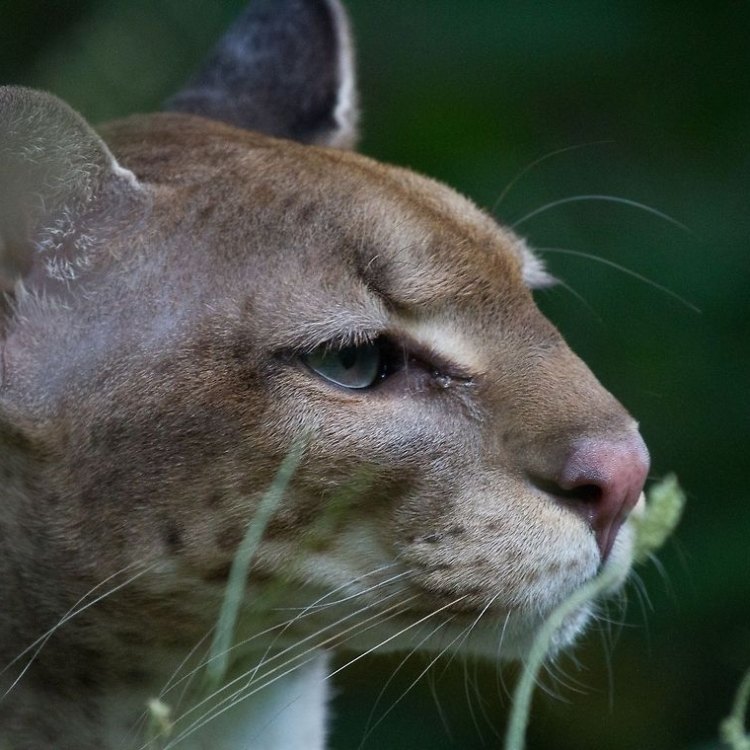
The Magnificent African Golden Cat: A Rare and Enigmatic Feline
Disclaimer: The content provided is for informational purposes only. We cannot guarantee the accuracy of the information on this page 100%. All information provided here may change without prior notice.


